It was only a few weeks into motherhood that I called my old friend Jac with a long overdue apology.
Back when she’d had her first baby, I’d been in my late 20s – a period characterised by career, travel and a few too many Friday-night drinks. Motherhood and babies weren’t on my radar.
In fact, looking back, in the weeks after Jac became a mother, I did little more than buy a cute onesie and shower her baby in compliments about how cute he was. It was only once I became a mother myself that I realised how woefully inadequate my support had been.
“I’m sorry!” I wailed over the phone to her. “I wasn’t there for you when you had a baby.”
Jac accepted my apology with laugh. But it’s becoming increasingly common for women to arrive at motherhood at different ages – as Jac and I did – and the effects on women, families and friendships can be wide-ranging.
Not so long ago, motherhood was the great equaliser – something women experienced at the same time.
Not so long ago, motherhood was the great equaliser; something women experienced at roughly the same time. If you became a mother in the 1970s, there’s every chance that you and your friends had kids in your twenties. More than two-thirds of first-time mothers had children before they were 24, and just two per cent were aged over 35.
Today, the average age of first-time mothers has risen to 29.7, and the window in which women enter motherhood has widened to straddle a woman’s 20s, 30s, 40s and even beyond. In fact, today, Australian women are as likely to have their first child in their early 20s (14 per cent) as they are in their late 30s and beyond (17 per cent) – if they have children at all.
This means that, increasingly, women are having children at a completely different age – or decade – to their friends. Just look around any playground; the bleary-eyed new parents standing around clutching coffees are as likely to be in their 20s as they are in their 40s.
Parenting in isolation
What does this mean for women? Becoming a parent can be an isolating experience for mothers and fathers, and embarking upon parenthood on a totally different timeline to your social circle can exacerbate that.
It means taking maternity leave without the scaffolding or support of friends, or trying to arrange catch-ups around conflicting nap times and schedules. For those without children or yet to have them, a gulf can emerge. It can be difficult to know how to help in those early, gruelling-meets-joyous days of early motherhood and frustrating to lose your social circle to motherhood.
For others, having children in different decades can be an unexpected source of strength. That was the case for Kathryn Ording, 47, and Evie Serventi, 50.
The pair have been close friends since they met at work in their 20s. However, while Kathryn became a mother at 23 (her daughters are now 24 and 22) Evie didn’t meet her partner Grant until she was 40. They had twins, Siena and Emilio, just four years ago when she was 45.
“Evie’s doing an amazing job,” says Ording of the fact that her friend is still grappling with lunchboxes and preschool adjustment while she is navigating the complexities of university-age daughters. “I couldn’t imagine myself in that situation now!”
Both women agree that there are unforeseen benefits of having children 20 years apart.
“If I’m struggling with a parenting issue,” says Serventi, “Kathryn is the type of friend who actually listens, and doesn’t just give advice straight away.”
Ording is similarly positive. Back when she had children, “it was a real relief to talk to someone who just understood me as a person, not as a mum. Evie was my lifeline.”
Bonds beyond babies
Dr Sophie Brock, a sociologist specialising in motherhood studies, believes that there’s much to be gained from having relationships with other mothers of all ages and stages.
“It’s also important to be able to have friendships that aren’t centred around our children [with] something else that ties us together in terms of values, interests or connection [so we’re] able to hold a part of ourselves and our identities outside of motherhood.”
However, she says there are downsides of the widening “motherhood age gap”, too. When women have children at vastly different ages, they may end up with conflicting ideas about parenting.
“A lot of the clashes [about] how to raise children comes from us living within different contexts of what it means to be a good mum,” Dr Brock points out.
Our perception of motherhood is changing
Another consequence of the widening gulf in mothers’ ages is that our perception of what a mother looks like – and needs – is becoming fractured. After all, a 25 year old’s experience of motherhood likely looks quite different to that of a 45 year old.
“If you have a baby early on when you’re still establishing your sense of self and who you are in your career, there can be some sense that you grow with your motherhood,” Dr Brock says.
“If we have babies later on in our lives when we have a really solid sense of self and career, then there can be a crushing of that and a reorientation, figuring out, ‘How is this all going to fit? How do I rearrange my life?’”
For friends embarking on motherhood at different ages, this is just one more difference to navigate.
Motherhood gap growing
There are myriad reasons that women are having children on diametrically opposed timelines, not the least the rise of IVF. Rebecca Huntley, a social researcher at 89 Degrees South, says education costs and financial and career pressures are other factors.
“The trope from women in focus groups is that ‘I’ve got to get through my education then get a job and prove myself and stay there long enough to get maternity leave [then] try and come back’,” she says.
However, she predicts that women will only continue to push motherhood back later – potentially making the motherhood gap even wider.
Elisha Casagrande and Kelly Burley believes that embarking upon parenthood at different ages allowed them to more fully support one another.
While Casagrande had her first child at 25, Burley had her daughter at 40.
“Kelly would make the effort to come to me – she didn’t have kids yet but had other friends who had and she just knew how to show up,” recalls Casagrande. “I needed those walks for sanity – to get some fresh air and adult conversation.”
Although Casagrande and Burley’s children are different ages, they say the age gap barely matters – much like the age gap between Casagrande and Burley themselves. “Our kids adore each other and we catch up now for park dates and coffees.”




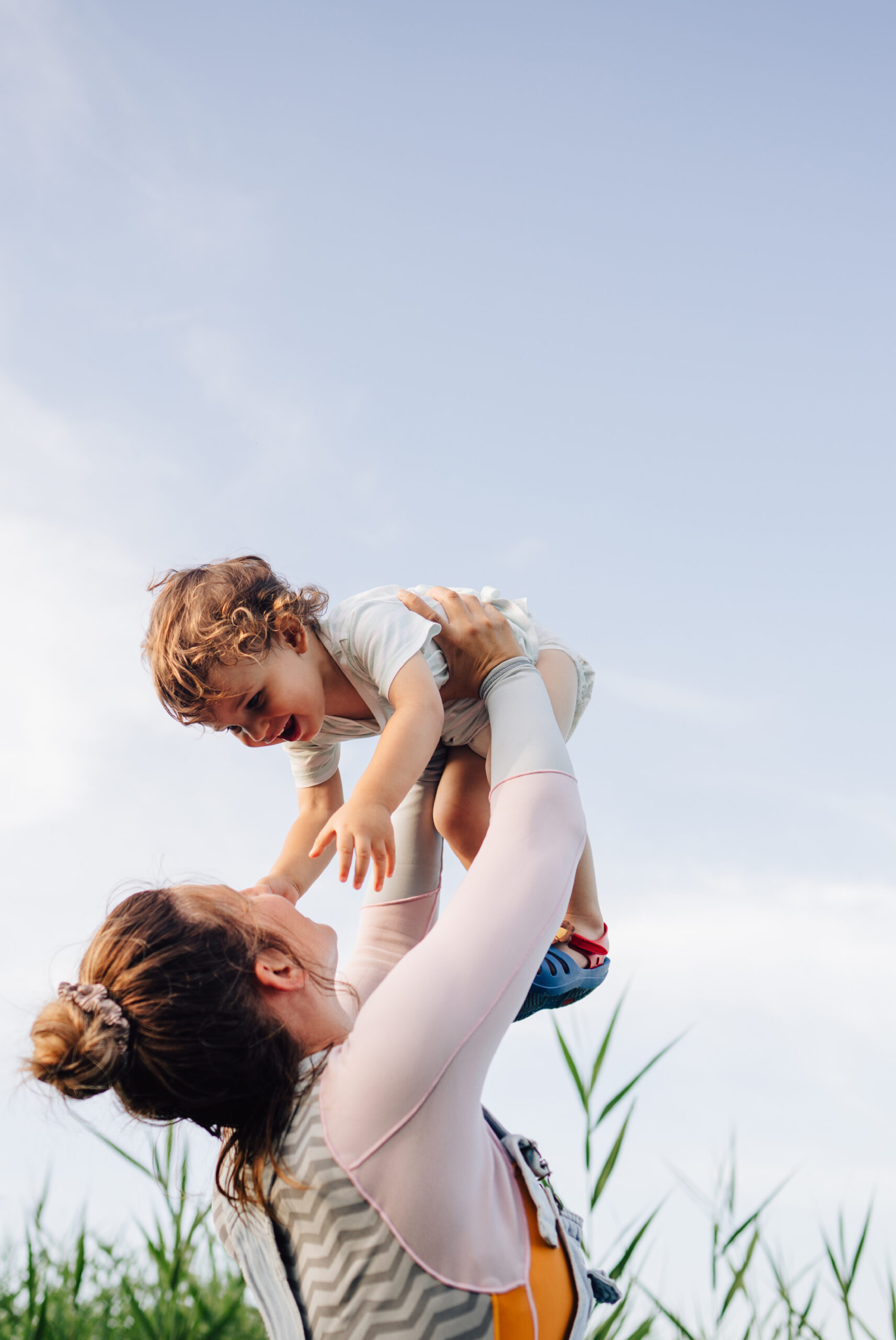
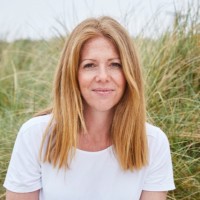

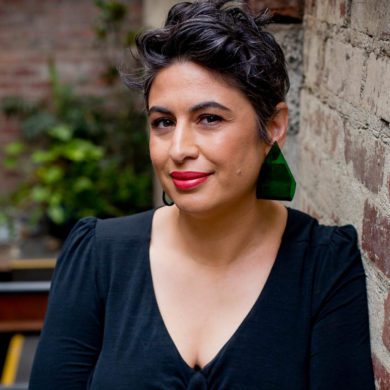
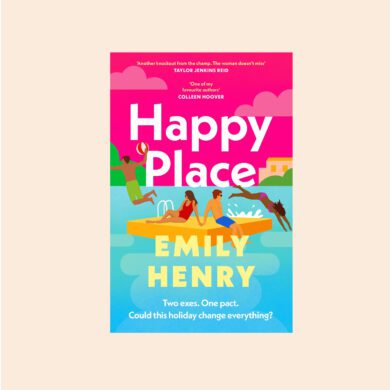
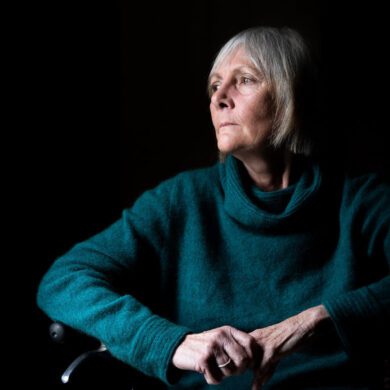
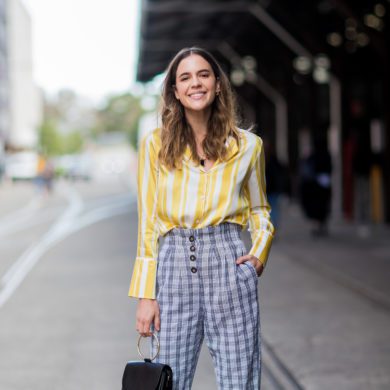

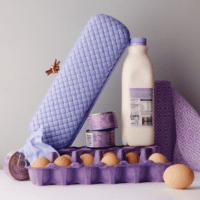
No Comments